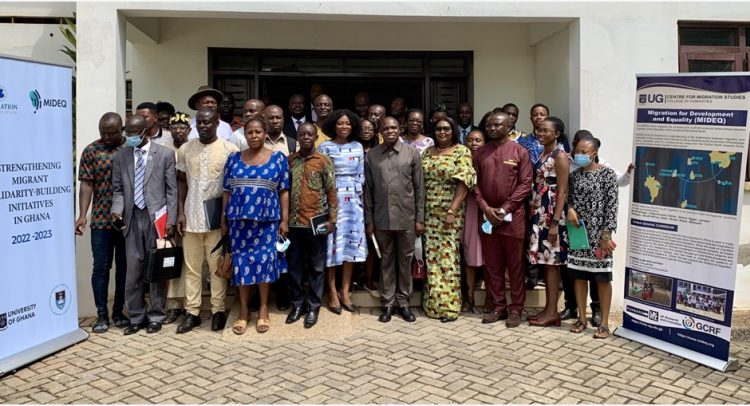MIGRATION, IF well managed, can enhance socio-economic development and improve the livelihood of migrants and their families.
However, there is little effort being put into building migrant cohesion in host countries.
It is in this regard that the Migration Advocacy Centre (MAC), in collaboration with the Centre for Migration Studies, University of Ghana, and the University of Cape Town, South Africa, has launched a project on Strengthening Migrant Solidarity-Building Initiative in Ghana.
The one year project has the aim of building capacities of local partners involved in addressing issues of migrants as well as forging partnerships with international organisations towards promoting migrant’s access and rights to jobs and other services.
It falls under the Migration for Development and Equality (MiDEQ) Research project, being undertaken at the Centre for Migration Studies.
The work package on Transnational Mobilisation and Political Solidarity, seeks to strengthen the capacity of civil society organisations and migrant groups to promote the access, rights and political participation of immigrants in Ghana.
Director of Research, Innovation and Development, University of Ghana, Prof. Joseph Teye, speaking at the launch of the project, said the area of migrant solidarity building has been neglected for some time now.
He,however, observed that migrants could support themselves adding that for this to happen,there was the need to put in place mechanisms that would ensure that migrants were able to contribute to their own wellbeing.
“To do this well, we need to conduct researches which will help us come up with policies that would be implemented especially to improve livelihoods of migrants,” he said.
Prof. Teye, who is also the Co-Director of the MiDEQ project, noted that it aligned with the university’s strategic goal of becoming a world class research intensive institution and “one of the ways that this can be achieved is to ensure that research findings are used to develop policies and are used to build the capacity of those that govern.”
Co-MiDEQ Investigator, Professor Prof. Mariama Awumbila, said the project was to build the capacity of civil society organisation and migrant groups to be able to advocate migrants’ rights particularly, immigrants.
“Data shows that people move more within the West African region, generally migrants tend to be vulnerable so this is to ensure CSOs have the needed skills to advocate for migrants rights,” she said.
She indicated that the event, which included a two-day workshop, was useful, addingthat participants were exposed to issues as resource persons were available to respond to their concerns.
“The next step is to develop communication tool kits for effective communication with migrants to let them know where they can access information. We will also look at social cohesion; how to get both migrants and locals to integrate and live together in peace,” she said.
“We are saying that when people move, we should try and make sure that the challenges they face is minimised and the advantages maximised,” she added.
MAC Partner, Festus Owooson, said the project is expected help improve the lives of migrants, their families and communities and thus reduce inequalities.
“There is also an expected collaboration with international partners to help challenge the state-driven negative perceptions of south-south migration and highlight its potential for reducing inequality and promoting development,” he said.
BY Jamila Akweley Okertchiri


